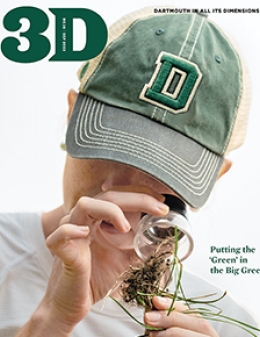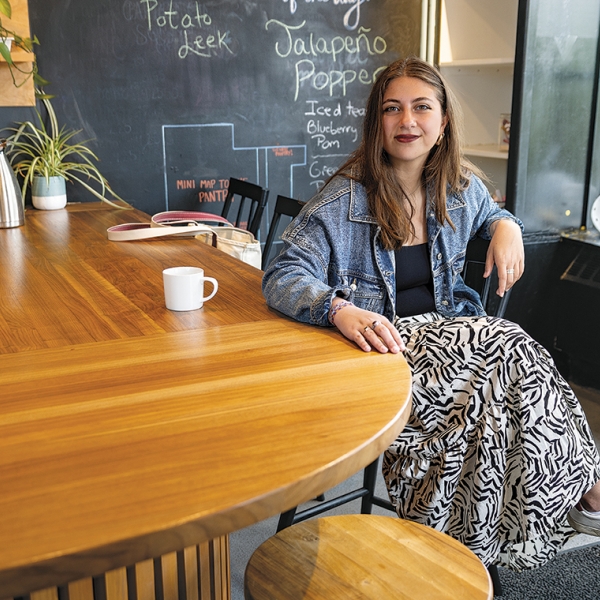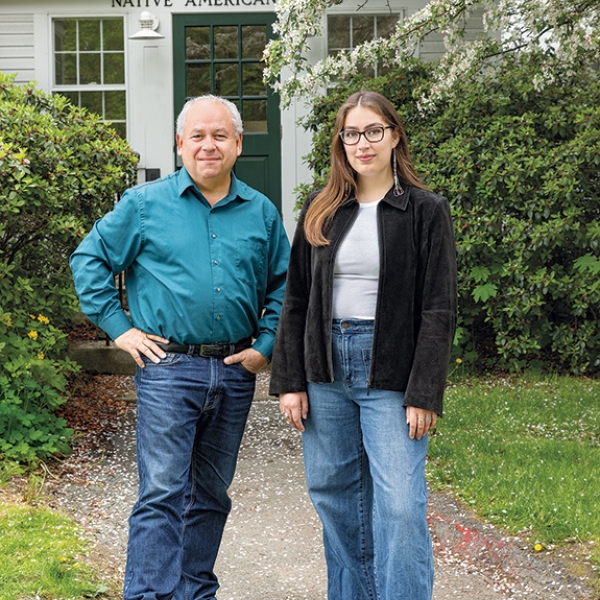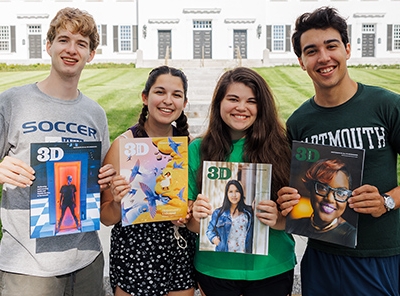On Burçin Mutlu-Pakdil's first day as a university student in Turkey, a faculty member expressed to her his doubt that she belonged. She was one of the only women in her class. "During my journey, I've noticed how important it is to have someone you can look to and think, 'She did it, so I can do it, too,'" Professor Mutlu-Pakdil reflects.
Today, the astrophysicist works to solve the mysteries of the most peculiar phenomena of our universe. She rose to academic fame when she made a groundbreaking discovery—a rare type of galaxy distinguished by its uncharacteristic double-ringed elliptical structure. Now known as Burçin's Galaxy, the finding represents an entire category of galaxies that was previously unknown to modern scientists. "There are no mechanisms that we can use to explain its existence," Professor Mutlu-Pakdil says. "By studying this galaxy, we can stretch our understanding of the universe."
For her, teaching undergraduates is as integral to her scholarship as her research. "We spend so much time fulfilling our curiosity and answering these big questions about the universe," she says. "But if you discover something, and nobody knows about it, what's the point? My students ask all sorts of questions that I haven't thought about before, and sharing knowledge with them motivates me. It's very intellectually satisfying."
Informed by her own experiences as a Muslim woman in academia, Professor Mutlu-Pakdil's teaching philosophy extends well beyond the classroom. "Approaching faculty members can be really difficult, particularly for first-generation or underrepresented students," she says. That's why visitors to her office are greeted by vibrant, colorful decorations and astronaut-themed teddy bears. "I remember being very shy in my first years as a student. I want my students to feel comfortable approaching me and asking me questions."
Professor Mutlu-Pakdil also knows the importance of creating accessible avenues for undergraduate research. As a faculty mentor for Dartmouth's Women in Science Project, which places female-identifying students into paid research assistantships with Dartmouth professors, she teams up with first-year students on hands-on research in her field. "Solving the mysteries of the universe is a very big quest, and there isn't just one genius who can solve it. It requires teamwork from multiple people of all backgrounds."
She's well on her way to helping the next generation of scholars coax the secrets of our universe from the stars. In 2018, she presented a five-minute TED talk on the discovery of Burçin's Galaxy. To date, it has amassed more than 2.6 million views. "I got all these messages from around the world," she remembers. "Young girls were telling me that they, too, want to discover galaxies and name them. They saw something in me and thought, 'If she did it, I can too.' I might not solve the mysteries of the universe, but maybe one of those girls will one day. That's my dream."
Photograph by Don Hamerman






